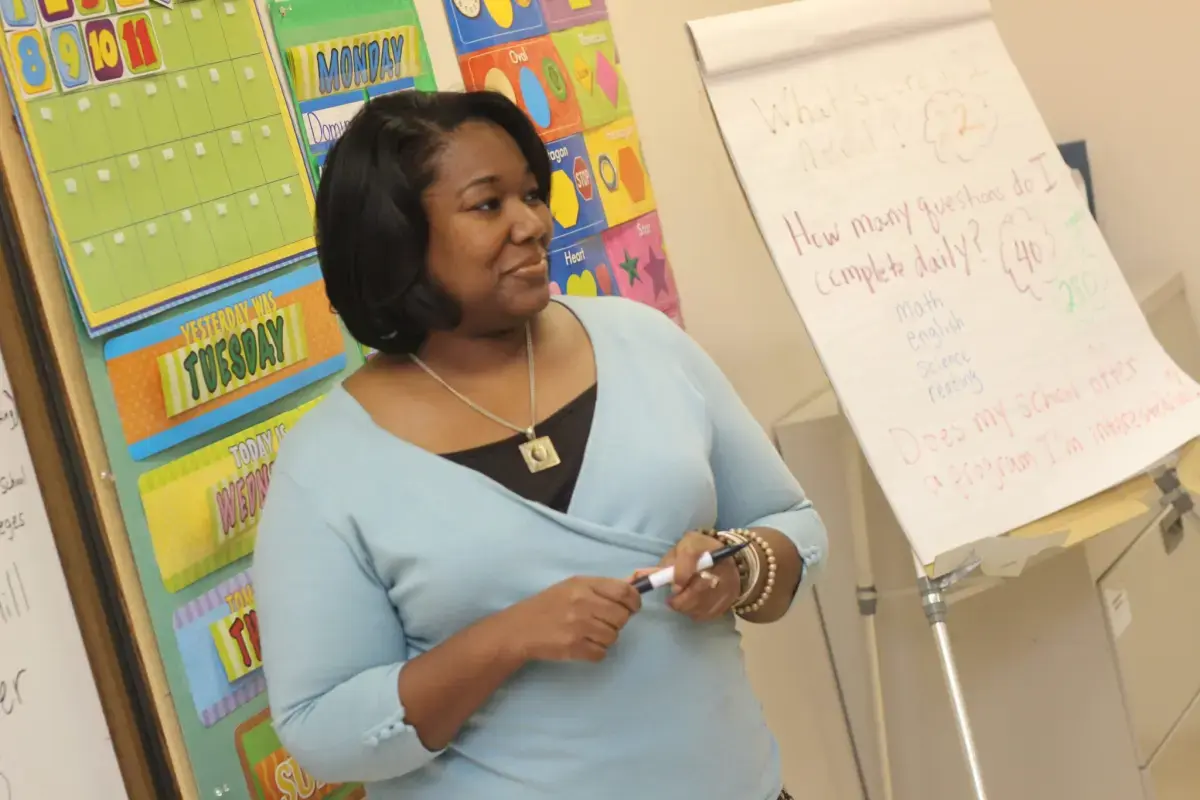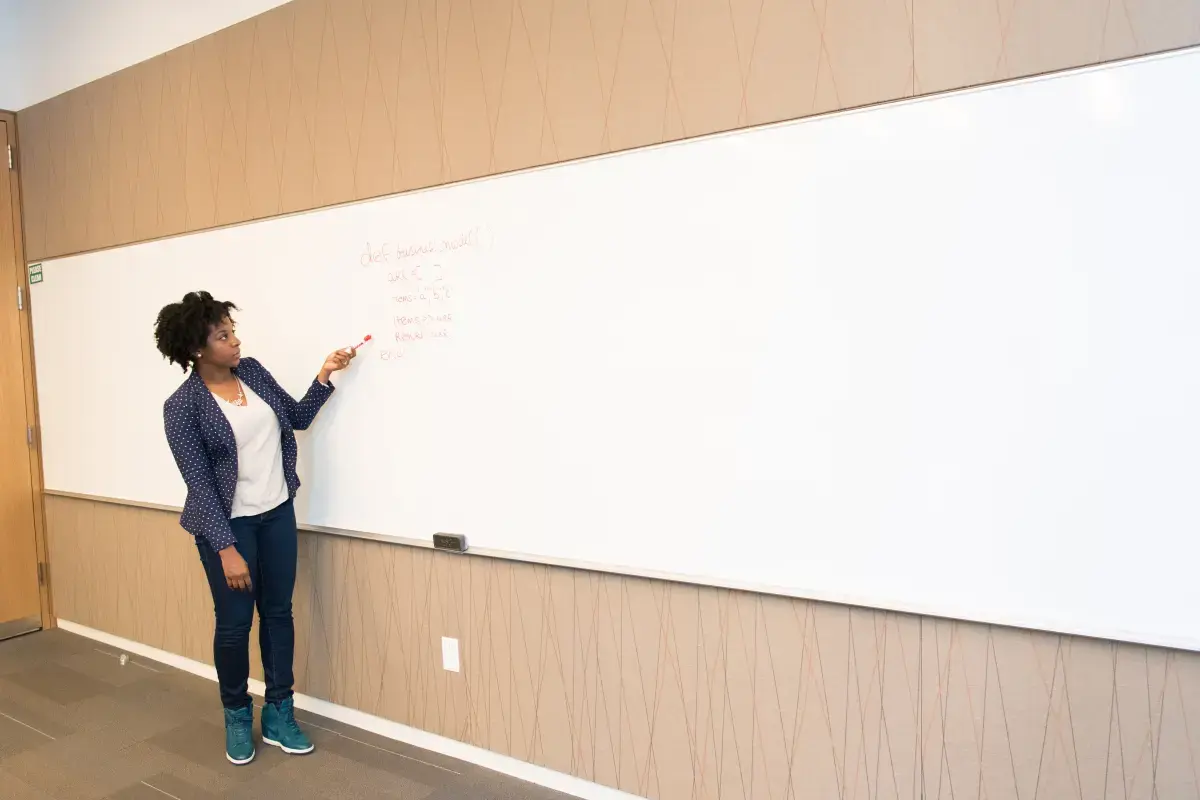
Teacher Job Description
What is a Teacher Professional?
A teacher is a person who helps others to learn. They can be found in schools, colleges and universities, as well as in other educational institutions such as museums and libraries. Teachers typically work with students of all ages, from young children to adults. The exact nature of a teacher’s job will depend on the level of education they are teaching, as well as the specific subject they specialise in. However, there are some common tasks and responsibilities that are associated with the role of teacher. These include: Developing and delivering lessons: This involves planning lessons in line with curriculum requirements, as well as ensuring that the material is appropriate for the age and ability of the students. Teachers will also need to be able to adapt their lessons on the fly, in response to the needs of the students or changes in the classroom environment. Assessing student progress: Teachers are responsible for assessing student progress and understanding, both through formal tests and examinations, and informally through daily interaction and observation. This information is then used to inform future lesson planning.

What does a Teacher Expert do?
Providing feedback: Feedback is an important part of the learning process, and teachers need to be able to give clear and concise feedback to their students, both positive and negative. This feedback should be tailored to the individual, and should help them to understand what they are doing well and where they need to improve. Managing the classroom: A teacher’s job also includes managing the behaviour of the students in their care. This means setting and enforcing rules, as well as dealing with any disciplinary issues that may arise. Liaising with parents and carers: In many cases, a teacher will also be responsible for communicating with parents and carers about their child’s progress and behaviour. This may be done through formal meetings, or informally through phone calls or emails. There are many different types of teachers, each with their own unique skills and abilities. However, all teachers share the common goal of helping their students to learn and develop.

What are the Skills of a Teacher?
A teacher needs a deep understanding of the subject they are teaching and the ability to convey this understanding to students in an engaging and interesting way. They must be able to plan and deliver lessons that are appropriate for the age and ability of their students, and must be able to adapt their teaching style to meet the needs of individual students. A teacher must have excellent communication and interpersonal skills, and must be able to build positive relationships with both students and colleagues. They must be able to manage behaviour effectively, and create a positive learning environment in which all students can thrive.

What makes an Expert Teacher?
A teacher must be able to use a range of assessment strategies to monitor student progress and identify areas for improvement. They must be able to provide effective feedback to help students learn and improve. A teacher must be able to use a range of technology to support their teaching, and must be willing to continue learning and developing their own skills. They must be able to keep up to date with developments in their subject area, and must be able to share their own expertise with others.

What level of Experience & Qualifications are required to be a Teacher?
Industry experience: Expert teachers should have extensive knowledge and experience in the field of education, such as classroom teaching or educational administration. They should also be familiar with current trends in education and best practices for teaching. 2. Training: Expert teachers must complete a rigorous training program that includes professional development courses, workshops, seminars and/or certification programs to maintain their expertise in the field of education. This training can include topics related to curriculum design, instructional strategies, assessment techniques, technology integration and other areas relevant to successful teaching practice. 3. Qualifications: In addition to industry experience and specialized training courses for expert teachers may need formal qualifications such as a master’s degree or higher qualification in Education or Teaching from an accredited institution depending on where they work. 4. Education: A minimum requirement is usually a bachelors degree but many states require additional licensure requirements including passing standardized tests prior to receiving full teacher certification status which could take several years depending on the state’s specific standards for teacher preparation programs (e..g., Praxis exams).

What is the Salary of a Teacher?
The salary expectations for teachers vary greatly depending on the level of experience, qualifications and other factors. Generally speaking, a teachers salary starts off relatively low at entry level but increases with experience and additional qualifications. Entry-level positions typically pay between $35,000 - $45,000 per year for public school teachers and up to $60,000 for private schools teachers. As one advances in their career with more years of teaching experience and higher degrees or certifications earned they can expect to earn anywhere from around $50K -$75K as mid-level educators. With many years of experience (10+), additional certifications/degrees or specialization in certain areas like special education or technology integration can lead to even higher salaries ranging from around 75K – 100k+. The top earners are often those who have significant administrative roles such as Head Teacher/Principal which can range upwards of 150k annually depending on the district size and budget. Of course these numbers may also vary based on cost-of-living differences across locations within the country so it is important to research local salaries before making any decisions about teaching opportunities

What are the Working Conditions for a Teacher?
Working conditions for a teacher vary depending on the setting and type of teaching. Generally, teachers work in classrooms or other educational settings such as libraries, laboratories, or outdoors. Most often they are responsible for planning, organizing and delivering lessons to students according to their curriculum requirements. They may also be required to develop assessments and grade student’s assignments. Additionally, they are typically expected to attend staff meetings and professional development opportunities such as conferences and workshops throughout the year. Teachers usually work during normal school hours; however some may have extended hours due to after-school activities or additional responsibilities outside of class time. Depending on the institutions policies, teachers may be required to supervise extracurricular activities beyond regular classroom duties which could include coaching sports teams or running clubs/programs at lunchtime/after school periods etc.. Teachers can also expect occasional weekend work when preparing materials for classes with upcoming projects that require extra preparation from them. In terms of safety regulations related specifically to teaching positions; most schools will provide appropriate resources including proper seating arrangements & adequate space between each student desk along with ensuring that any hazardous materials (chemicals) used in experiments etc., must be stored securely away from children’s reach according OSHA standards & other relevant health codes set by local governments

What are the roles and responsibilities of a Teacher?
To develop schemes of work and lesson plans in line with curriculum objectives.
To deliver lessons in an engaging and interactive way.
To mark and assess students work and give feedback.
To monitor and support students progress and development.
To undertake regular monitoring and observation of students.
To identify students who need extra support and plan interventions.
To maintain positive and professional relationships with students.
To promote a positive learning environment.
To manage classroom behaviour effectively.
To keep up to date with developments in the teaching profession.
To participate in professional development opportunities.
To undertake administrative tasks such as record keeping and lesson planning.
To liaise with other members of staff, such as support staff and senior management.
To communicate with parents and carers about students progress and development.
To participate in departmental and whole-school meetings and projects.
To contribute to the development and implementation of school policies.
To undertake other duties as required by the school, such as supervising students during breaks or attending school events.
To be a role model for students.
To inspire students to learn.
To promote the values of the school.

Where can I find Teacher jobs?
- Create a profile on gigexchange and promote your Teacher skills to advertise you are Open to New Work Opportunities
- Ensure your Resume (or CV), or online work profile is up to date and represents your skills and experience. Ensure your reputation reflects your ability & attitude.
- Apply for Teacher Jobs advertised on gigexchange.
- Practise Teacher interview techniques to ensure you represent your personality and ability succinctly and confidently.
- Accept the job offer if the salary meets your expectations and the employer mission and purpose reflects your core values.
Jobs
What are the best job boards for Teaching jobs?

How can I hire Teacher staff online for my business?
The best job board for recruiting Teacher experts is gigexchange.com. Advertise full-time, part-time or contract jobs to find, hire & recruit trusted, experienced and talented Teacher candidates near you.

Are Teacher roles in demand in 2026?
Teacher experts are still in high demand in 2026. If you are an experienced Teacher or looking to train and become one. The job market is looking strong for Teacher jobs near me.